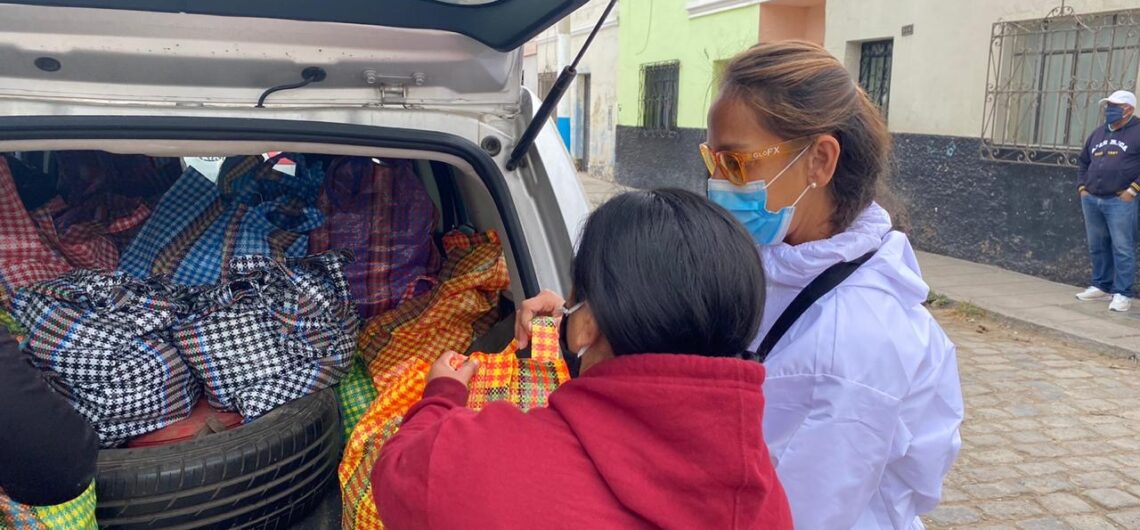Pandemic Tales From Peru: Angie Pelosi
Whilst international travel remains largely restricted, Aracari is still bringing you inspiring tales of people and culture from Peru, Bolivia, and the Galapagos.
Last month, Aracari spoke with Peruvian Chef, Penélope Alzamora, about pandemic initiatives that are supporting those working in Lima’s world-famous gastronomy and hospitality sectors. This month we’re talking to another inspiring woman about how the Pandemic has effected people from some of Peru’s poorest communities. Specifically, single mothers living in the Lima district of Callao, which until recently was considered too dangerous for tourists to visit.
You may recall a story Aracari published back in April about how a project called Callao Monumental, combined tourism and urban art, to help rejuvenate the Callao community. However with less tourism than before it seems new rejuvenation initiatives are required, which is why we decided to get back in touch with our friend Angie Pelosi one of the founders of Callao Monumental. Over the years Angie has frequently gifted her time, in aid of giving Aracari travelers the most authentic experience of Lima’s modern and urban arts scene.
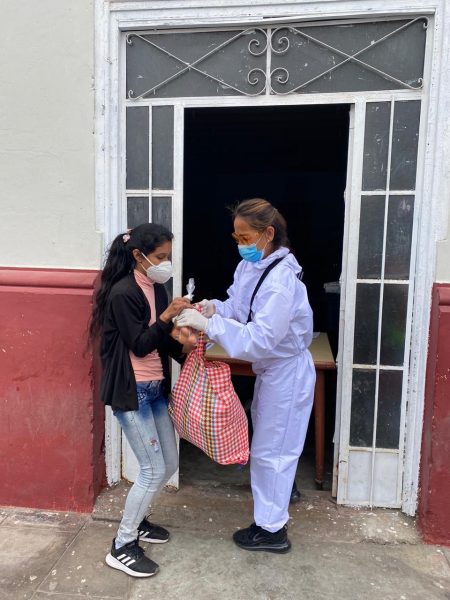
AT: Angie, tell us what’s happened since we last spoke back in April?
AP: Sadly, I lost my job, as did 90% of the workers at FUGAZ [the organization that ran the Callao Monumental project]. The project gave local people an outlet for their creativity and opportunity to become creative entrepreneurs. Guided urban art tours and tourism, in general, created income streams for this community, but now the pandemic has put a stop on that and I fear people in the community are becoming less able to take care of themselves. Unemployment has risen and in the worst cases, some people are going hungry.
AT: What are you doing now then? How have you adjusted?
AP: Alongside a group of volunteers and friends from FUGAZ, I have set up a new initiative called ALMA. Our aim in the short term is to alleviate any hunger in the community and help those without jobs. In the long term, we want to give people opportunities for self-development and help them become entrepreneurs. It very much builds on the ideas that were central to the Callao Monumental initiative.
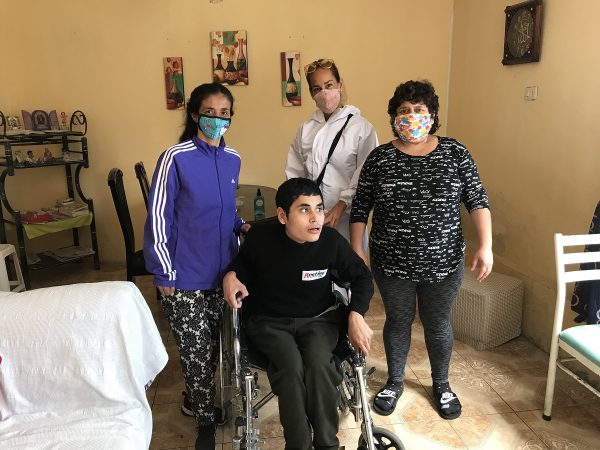
AT: How exactly does ALMA achieve its aims?
AP: Right now, we’re focusing on helping single mothers in the community, who have been affected by the pandemic. These women are a particularly vulnerable group because they have their children’s mouths to feed and no one else they share an income with.
ALMA relies on the generosity of strangers and large organizations to donate food, which we process into food packages and distribute among the women who need our help. This remedies an immediate challenge in these mother’s lives.
Then, we help these ladies become self-sufficient. Each person’s circumstances are different, but many of the women ALMA chooses to help have existing creative skills thanks to being previously involved with FUGAZ. With our support, these women turn their creative skills into businesses that give them incomes. They just need the right guidance and sometimes a little push.
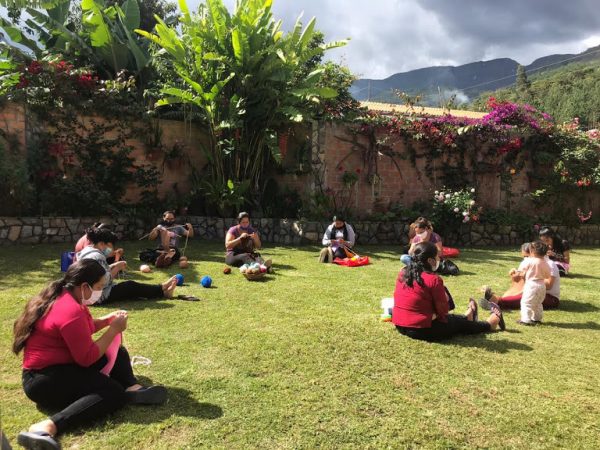
AT: What types of businesses have been set-up through ALMA?
AP: Well, we have encouraged many of the women with existing sewing and weaving skills to work collectively to start producing face masks. It’s a product, whose demand has grown even faster than the unemployment rate. Word-of-mouth marketing has helped us sell a countless number of these masks. As more people have learned about the financial lifeline, these masks give to these mothers, demand has risen. It’s truly beautiful to see and many of the women are now branching out into other products like bags and napkins.
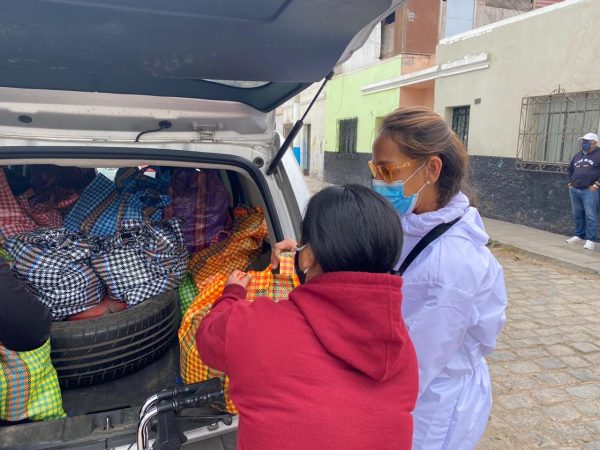
AT: How many women have been helped by the ALMA program so far?
AP: It’s very early days, but already we have helped feed almost 100 vulnerable women in the Callao community. The group that is making face masks is much smaller, but we’re gradually acquiring the resources to allow more and more women to participate.
AT: Undoubtedly, ALMA owes you a great debt for everything you’ve invested in the initiative. What’s been in it for you?
AP: Yes, it’s exhausting work. I find myself collecting eggs, assembling food packages, transporting, and delivering the food between Callao and our donors, all whilst having to respect the protocols around social distancing, hygiene, and safety. When the pandemic started, I could not stand idly by watching my friends and other women like them suffer. My soul demanded me to take action and it is enough to see these people become empowered again. Nothing feeds the strength of your soul more than supporting people in need.
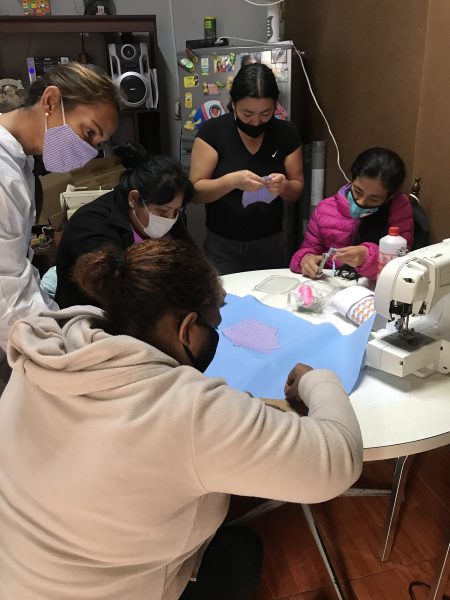
AT: What are the ALMA initiative’s ambitions for the future?
AP: I’ve already mentioned ALMA’s long-term aims. I’m planning to achieve them by organizing sewing workshops so that more mothers can learn how to produce clothing and set-up businesses. We’re also going to set up a kids group so that the ladies can leave their children in good hands whilst they go to work. If we get enough support, then I would like to be able to hire teachers so that the children can learn and train while they are there. Already, we have hosted virtual book reading events for the children – which I believe is very important to be successful and a delight to see the smiles on their faces.
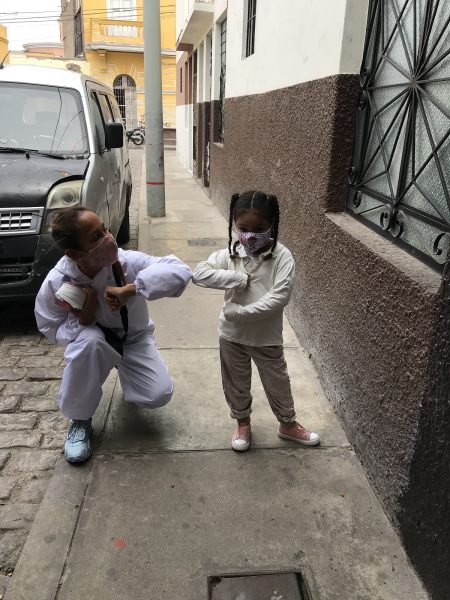
AT: What’s the moral of your story? What values do you think it takes to survive a pandemic?
AP: Honesty, kindness, respect, generosity, effort, empathy, resilience, teamwork … let your soul impel you to do good. A good example is a recent donation of handmade hats and scarves we received from a group of women weavers from Cocachimba, who had heard about the ALMA project. Their town lies at the base of the Gocta Waterfalls, almost 1200km away from Callao. It was completely unexpected. Human generosity breeds even more generosity, which is something we all need right now.
—
Angie’s altruistic pursuits serve as another inspiring tale in these turbulent times. Her story reminds us how we can empower each other to overcome obstacles by; being creatively minded, investing in our relationships, and giving more to others.
Many of you will have previously visited Callao Monumental on one of Aracari’s art excursions in Lima. In the future, you’ll perhaps be visiting the district to discover Peruvian fashion. If you’d like to talk to us about planning an itinerary or supporting the ALMA initiative in any way, please contact travel@aracari.com.

